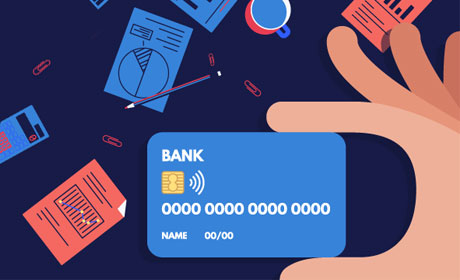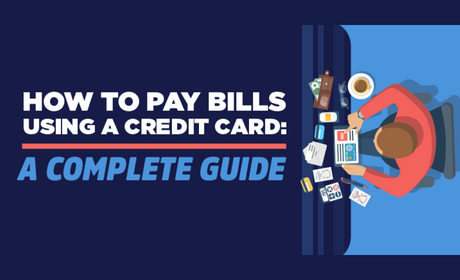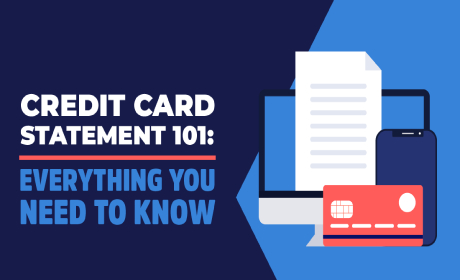Credit Card Balance Transfer: What Is It and How It Works?
 2 min read
2 min read
Trying to pay off your credit card dues can be a stressful situation to be in when you need to balance multiple different accounts at the same time.
When you fail to pay off your credit card debts efficiently, it can be easy to feel overwhelmed and frustrated as you watch your balance grow with the monthly interest. Luckily, making a balance transfer is an open solution that you can try to help you manage your accounts a little bit better.
Through a simple credit card application, you now have a way to minimize the interest rates currently being charged to your account. Depending on the type of agreement you sign up for, you can find an offer that gives you as little as no additional interest on your transfer.
Sounds exciting? But how exactly does a balance transfer work, and what can it do for you in the long run?
What is a Balance Transfer?
A balance transfer, in simple terms, is the act of taking your debt from one credit card and transferring it to another. In most cases, the transfer is made to a new card that offers lower interest rates when paying your debts. As a result, you can significantly reduce the number of additional fees charged to your accounts as you continue to pay it off.
Many credit card owners find balance transfers a reliable strategy to pay off cards faster. This is because most credit card companies waive balance transfer fees that are around a certain percentage of the amount being transferred. There may even be some events or limited-time promotions where no interest is charged. Thanks to the lower interest rates you can get, you can save up a lot more money.
What Types of Debt Can You Transfer?
Major credit card companies have a list of specified debts that can be transferred to their cards. Depending on the company, the policies for these agreements may also vary, which is why it is essential to check if your balance is eligible or not before making a new credit card application.
In most cases, credit card issuers forbid balance transfers if your debt is within the products of their company. These include transferring them to affiliated companies, subsidiaries, or partners. They may also reject your application if your original loan was issued by a company noted in their terms.
Benefits of Balance Transfer: Why Should You Consider It?
Making a balance transfer can give you plenty of benefits to enjoy and take advantage of while the offers are hot. Here are some of the few perks you can see coming your way from this financial solution.
• More savings from lower interest rates
Many major banks often offer specials on balance transfers with low interest rates. By taking up one of these promos, you immediately give yourself a chance to pay back your debts at an advantage. At the same time, you also waste less money paying service fees which can now go towards paying off your monthly dues.
One thing to take note of is that most of these special offers often have an expiry date. So, before signing up for a new credit card, make sure you ask the proper representatives a few important questions regarding their terms and conditions.
• Consolidate debt from multiple cards
When you have to make payments for multiple credit cards each month, things can get pretty overwhelming after some time. Luckily, by making a balance transfer from multiple cards to a single one, you create a system for yourself, making debt payments more organized and easier to keep track of.
However, before you jump right into this solution, check with your credit card issuer first to know if you have enough credit limit to handle all of your transfers.
• Switch to a card with better rewards, terms, and perks
Switching to another credit card can offer you more advantages than your current one. Apart from lower interest rates, some companies offer bonuses such as longer grace periods, better terms, and rewards. With these benefits, paying off your debt could become more rewarding in the long run.
• Get out of debt faster
The main focus of taking up a balance transfer is getting lower interest rates to help you pay off your balance faster. With this setup, you can create better financial plans for yourself to keep you afloat comfortably and continuously.
However, remaining diligent with your monthly payments is a must. Missing a due date could lead you to pay additional penalties, which can be quite expensive in most cases.
• Make payments simple
Transferring all your balances into one credit card can make paying for your dues simple and efficient. Doing so eliminates the need to look through numerous billing statements each month, helping you save valuable time in the process. At the same time, it can also help you reduce stress on yourself and prevent you from worrying about your debt.
Top Things to Look for in a Balance Transfer Card
Before applying for a balance transfer, you need to remember that each bank offers different terms and conditions. Here are a few things you should consider before choosing an offer to sign with.
• Low introductory Annual Percentage Rate (APR)
Looking out for credit cards that offer low introductory APR can grant you the benefit of paying your balances while getting less interest. Some major credit card companies offer a 0% introductory rate when you apply for a new account. Keep in mind that to qualify for this benefit, you need to show a record that you can maintain a good credit score.
• Low balance transfer fee
Finding an offer that grants low transfer rates can save you a few hundred bucks from your account. Although not many, a few major banks still offer reasonable transfer rates to make your application smoother. Before you decide on an offer, remember to calculate the total costs for everything to ensure that you get the most out of every cent in your pocket.
• Low annual fee
The ideal balance transfer card comes with the lowest recurring rates to help you manage your financial situation. Look for a credit card company that offers low to no annual fees. With this advantage, you can lessen your expenses from paying additional fees and be closer to paying off your debt.
• Large credit line enough to transfer your balance
If you're making a balance transfer from multiple credit cards to a singular one, make sure that you check with your issuer if your credit line is high enough to support everything. This will make the transition to a single account easier and more seamless to process.
• The types of debt you can transfer
Keep in mind that credit card companies have different terms and conditions for balance transfers. What you may be able to do with one bank, you may not be able to with another. Make sure that the balance transfer you choose will allow you to make the changes you require to meet your needs.
Top Tips for a Successful Balance Transfer
If this is your first time making a balance transfer, fear not. These helpful tips can help you make a seamless transaction.
• Understand the terms of the balance transfer
Before signing the agreement, make sure that you carefully read through all of the terms in the contract. Take note of fine prints such as the fees you'll be paying, the duration of the term, and other essential details.
• Create a plan for settling your debt
Making a financial plan can help you balance out expenses throughout the following months. By doing so, you can also predict how much money you get and save as you continue to pay off your debts.
• Pay off the balance before the intro period expires
Some banks offer low interest rates for a promotional period. Make sure that you pay off your debt before this time frame ends to avoid increased interest.
• Avoid making purchases with the balance transfer card
Keep in mind that most banks don't offer promotional rates for purchases you make on your balance transfer card. The interest for these transactions can pile up fairly quickly if you're not careful.
• Asses all fees included
Be aware of all fees that you're being charged with. This way, you won't be left with any surprises when you get your monthly statements.
Should You Do a Balance Transfer?
Making a balance transfer can be a beneficial move to help you manage multiple credit card debts. To learn more about your eligibility, get in touch with a representative and sign up for an RCBC Bankard credit card today.

 bc
bc






















.png)
.png)










.jpg)
.jpg)

.jpg)

.jpg)

.jpg)



.jpg)
 (1).jpg)
 (1).jpg)
 (1).jpg)

.jpg)
 (1).jpg)
 (2) (1).jpg)
 (2) (1).jpg)
.jpg)
 (1).jpg)
 (1).jpg)
 (1).jpg)
 (1).jpg)


.jpg)
.jpg)
.jpg)
.jpg)

.jpg)
.jpg)


.jpg)
.jpg)
.jpg)
.jpg)
.jpg)
.jpg)


.jpg)
 (1).jpg)

.jpg)

.jpg)
.jpg)
.jpg)
.jpg)
.jpg)
.jpg)


